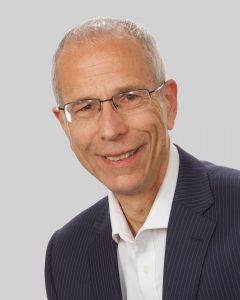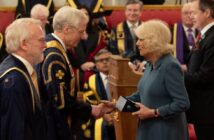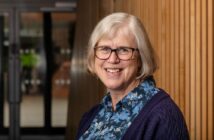There’s more to a good night’s sleep than we might think, suggests Dr Paul Kelley, who has created a public research project to open our eyes to our chronotype – our natural sleep pattern.

Dr Paul Kelley
If you’re prone to sleeping on the job, it could be you’re going against your chronotype. Changing your work/study hours might make you more effective. And if you have a teenager who struggles to make it into school on time – perhaps it’s because the school hours need to be later.
These are just some of the suggestions from Dr Kelley who would like both students and the general public to take part in his new NQuire survey – What’s Your Chronotype?
Dr Kelley says:
Everyone has a natural wake/sleep pattern, or chronotype. In this survey, we’d like to find out what times of the day particularly suit you, so we can learn more about these patterns.
The survey is being carried out by academics from the Open University as part of a wider research study to understand student chronotypes, and also those of the general public. Questions include looking at what time you get up in the week, versus weekends; what time you feel you operate at your best and the limits society puts on your time. It may not always be easy to decide for some parts of the day, but Dr Kelley says they are most keen on “your best guess”.
Find out what type you are
Once completed, the survey will provide feedback about the different chronotypes, their characteristics, and allow participants to find out which type they may be.
Dr Kelley is a former headteacher who carried out a nine-year investigation into finding an exemplar learning environment, which led to further work in schools determining when people learn best.
Following retirement from headship he became an Honorary Clinical Research Associate at Oxford’s Sleep and Circadian Neuroscience Institute from 2014-2016 and has been an OU Honorary Associate since 2016. He is working with colleagues at the OU, to use this survey-based approach to determining when each student learns best.
He says:
The NQuire survey is now live for anyone, anywhere to try. OU students in particular are invited to use the chronotype survey and only they need to fill in the questions about their course. The OU student data will be analysed after the first set of results in early 2019. It may even be instrumental as a permanent feature of support for OU students.
What time is right?
The survey is prompted by Dr Kelley’s decade long devotion to the search for an answer to the simple question of “When should we learn?”
Of his research, Dr Kelley says:
Research demonstrated that the “when we learn” depended on an individual’s chronotype- whether they were morning types (larks), evening types (owls) or in-between. But the key discovery was there is no single time to learn in the day that is suitable for everyone.
He continues: “The conflict between biological and social time is endemic in modern society because of the use of social time systems that are not synchronised to biological time leading to unintended consequences. This leads to sleep deprivation, illnesses, mental health problems.
It’s discovering why early types thrive and late types suffer in modern society (that clings to early starts). The discovery allows us to see the solution: synchronise social time to biological time.
Unlike most universities OU students can learn at a time that suits them. The chronotype survey was created over four years to help students identify when they are at their best.
Most universities start lectures early, but OU students can study when it suits them, so we’re interested in finding out when our students feel at their best and helping them organize their time so that their learning time is efficient and effective for them.
Everyone has different best times, so we all need to know when we are most effective.
Dr Kelley explained that health is the focus of circadian research: synchronizing your work, learning and sleep to your body clocks is essential for good health (and good work performance and learning).

Not everyone is a morning person
When the times in your day for work, learning and sleep are desynchronised (as in night work at an extreme) health, performance and learning are poor, he finds.
It is a global issue of course, but in the UK there is increasing interest in good sleep and working hours- especially flexible hours or working at home. We’ve just turned back to normal time from the so called Daylight Savings Time and so they will remember what a boost an extra hour in bed will make.
How we time our days impacts on all of us now of course, but it changing. People are now more concerned with getting enough sleep as their 24/7 world seems to demand. Now 20% of UK workers work from home, and some have flexible working hours, and this is growing rapidly. How do we spend our time and crucially when are you at your best?
Dr Kelley has collated his research and learning in his new book Body Clocks: The biology of time for sleep, education and work, co-authored with Sian Griffiths of the Sunday Times, which explains both the problems and solutions.



